Ottawa barberry: description and varieties, planting and care
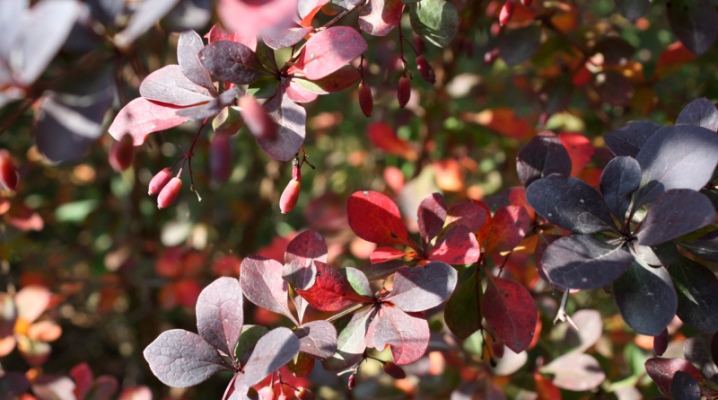
Ottawa barberry is an ornamental shrub popular among gardeners, which is often planted in personal plots. Like any other plant, barberry has its own individual characteristics that must be taken into account in the process of caring for the plant.
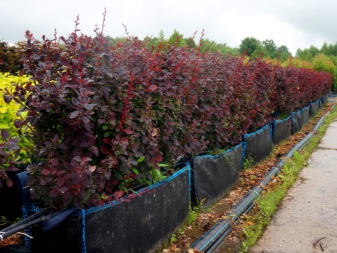
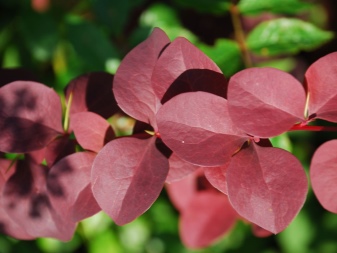
Peculiarities
One of the most characteristic features of the Ottawa barberry is its color. The crown of an ornamental shrub has a purple-red color. It is thanks to this external characteristic that the plant is often used in landscape design as a decoration of the site.The shrub itself is a hybrid plant obtained by crossing the common barberry and the Thunberg barberry.
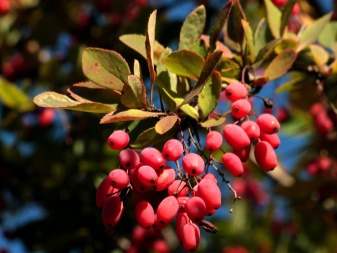
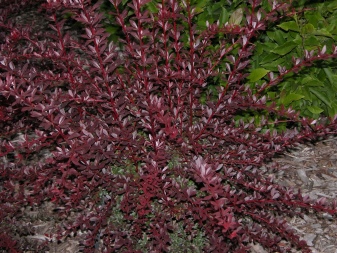
In this regard, its external features, as well as internal features, are not uniform - the Ottawa barberry combines the best qualities of the two original species.
So, if we talk about the height of the bush, then it should be noted that this indicator can fluctuate in the range from 2 to 3 meters... At the same time, the diameter of the crown of a barberry can reach 2.5 meters.
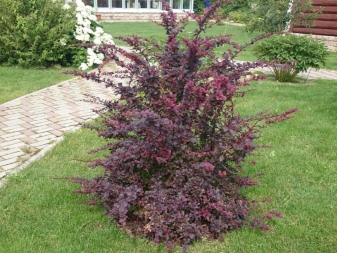
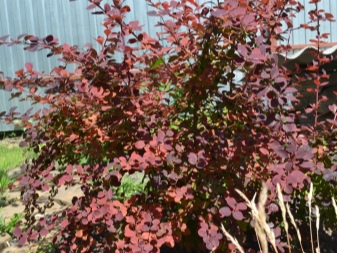
The main part of the barberry bush is spreading branches that have an arched shape. In this case, the stems can grow both up and down. When caring for the plant, you should be quite careful and attentive, since the Ottawa barberry has thorns.
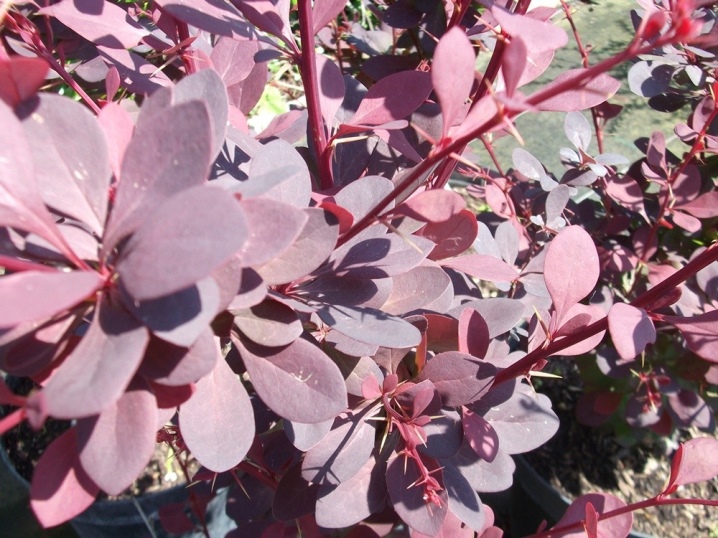
The purple-red shade of barberry leaves is unstable, it is able to change and lighten. This phenomenon is especially typical for the autumn period. The flowers of the ornamental shrub are small in size, but have a pronounced color. Their background color is yellow, but red spots may be present. The flowers themselves do not grow singly, they are collected in a brush. Their flowering time is May. It should be borne in mind that the flowers of the Ottawa barberry have a characteristic aroma.
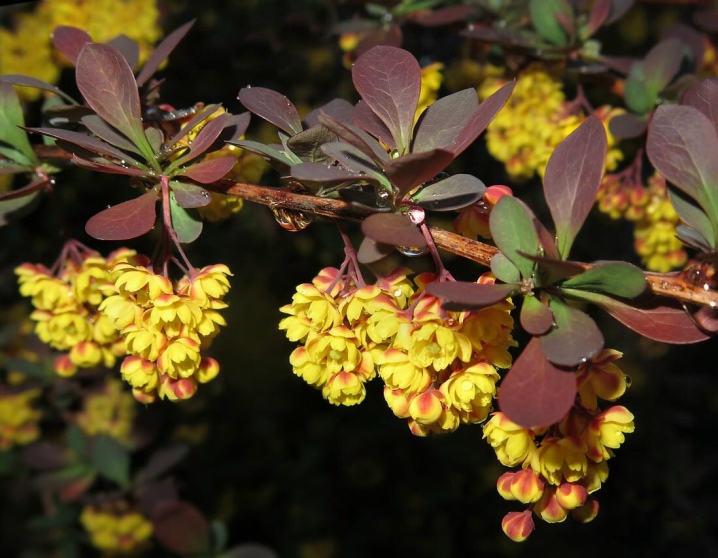
In addition to flowers, barberry also has berries. They have a red tint and are quite large in size.
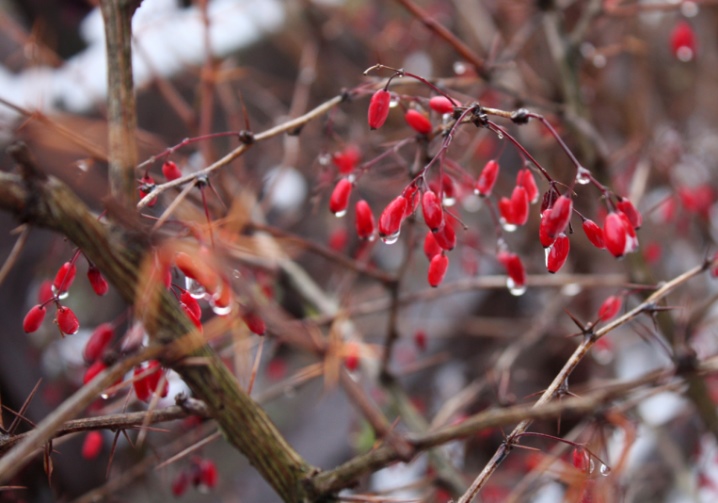
The structure of the root system of the Ottawa shrub has a branched structure.
The plant tolerates transplanting well.
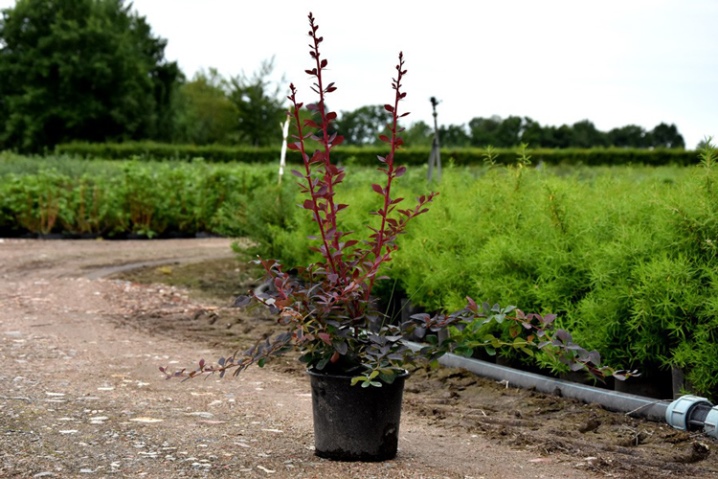
Varietal variety
The Ottawa purple barberry (Berberis ottawensis) includes several varieties. Let's consider the description of each variety in more detail.
Silver Miles
Silver Miles can grow to a height of two meters. However, you can see such indicators only after 8-10 years of plant growth and development. "Silver Miles" differs from its relatives in the unique color of the leaves. So, if you look at the plant from afar, it may seem that it is painted in a dark purple color.
However, in reality, the color of the shrub is completely heterogeneous. On closer inspection, you can see that on the surface of the barberry there are various stripes, spots and marks of a different kind. They, in turn, have a pinkish-gray tint.
The flowering process of the Silver Miles variety occurs in the last month of spring. However, it produces bright and colorful yellow-red flowers.
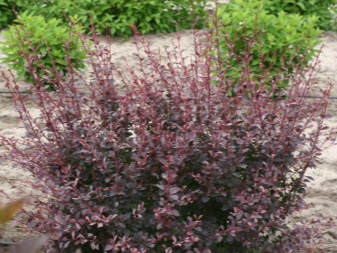
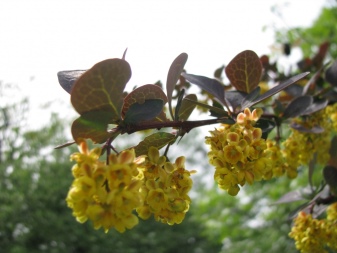
"Auricoma"
The Auricoma cultivar is a taller shrub, as the plant can grow up to 2.5 meters in height. The leaves are round and up to 5 centimeters long. The color of the barberry Auricoma is purple-red. It does not change depending on the season.
Auricoma has fruits that ripen by the end of the 3rd trimester. They have a sour taste.
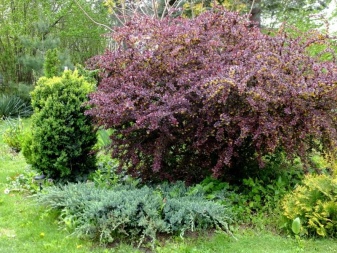
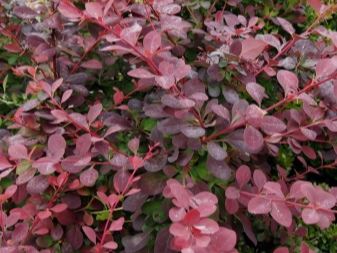
This type of Ottawa barberry is most often used in landscape design. It is used both to decorate private areas and to decorate public areas. For example, quite often the shrub can be seen as part of the composition in hedges.
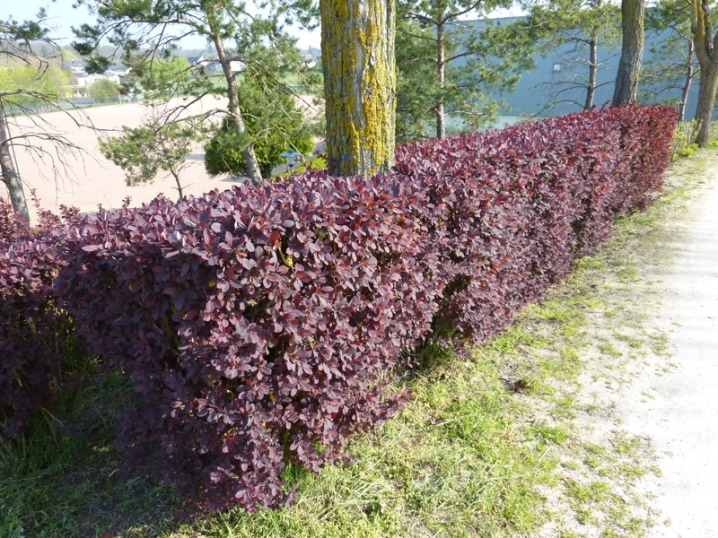
Superba
The largest species of Ottawa barberry in terms of its indicators is Superba. The plant can reach a height of 3 meters, while significantly exceeding human growth. The crown size is also quite large and ranges from 2.5 to 3 meters.
The color of the leaves of the plant is unusual - a bluish tint. At the same time, Superba changes its color in the autumn season, becoming lighter and acquiring an orange tint. The fruits of the plant ripen by mid-autumn: they are edible and have a sour taste.
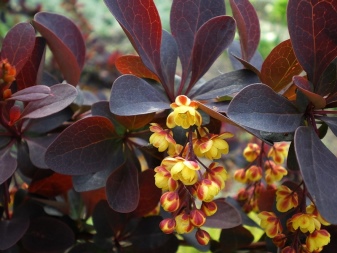
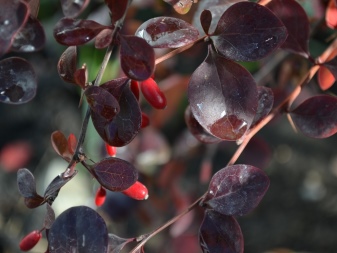
If we talk about the use of the variety in landscape design, then it is worth noting that barberry is used not only as part of a variety of compositions, but also planted singly.
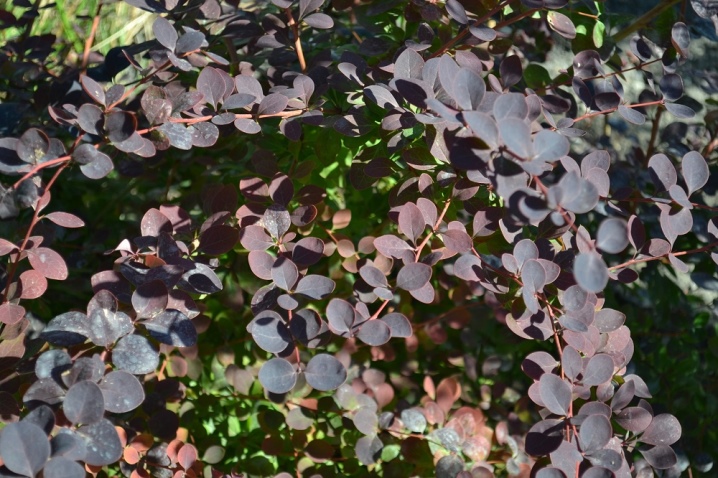
Thus, in total, there are 3 main varieties of Ottawa barberry in nature. Despite the fact that they are all related, each of them has its own unique characteristics and features that distinguish the plant from other similar shrubs.
Before planting an Ottawa barberry on your site, carefully study all the features of a particular variety, and only then start planting.
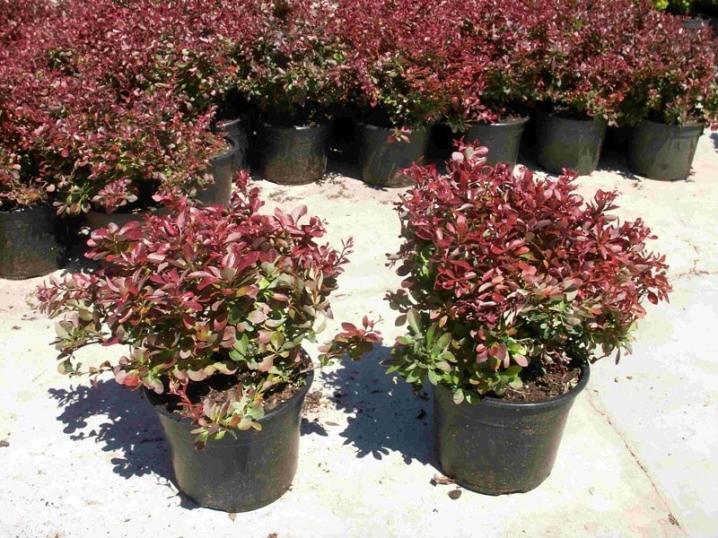
Planting and leaving
First of all, when planting, it should be remembered that the shrub will grow best in sunny and well-lit areas. If possible, choose a location free of drafts and wind.
Ottawa barberry will grow best in neutral soil conditions (growth and development may slow down in an alkaline or acidic environment). Do not forget to first carry out drainage work on the site. Make sure there is no groundwater near the planting site.
To plant a single shrub, you need to dig a small hole, the height, length and width of which must be at least 0.5 meters. At the bottom of the hole, we lay a drainage coating at our discretion (it can be brick fragments, small pebbles, crushed stone, another option).
And also in the pit you need to fill in a previously prepared fertile mixture, which should consist of turf, sand and humus (in proportions 1: 1: 1). Then water the soil mixture abundantly.
We plant the seedling in a strictly vertical position. If necessary, add some earth, and then water the young plant again.
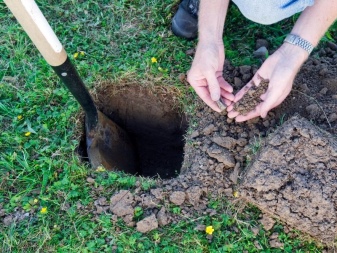
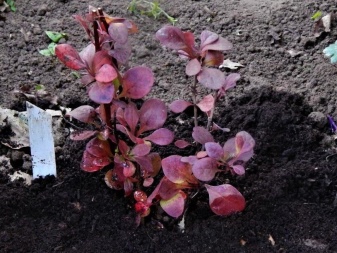
Watering, feeding and pruning can be considered mandatory care measures for Ottawa barberry of any variety. Despite the fact that the shrub easily tolerates drought, it can die from poor and insufficient watering - its recommended frequency is once a week. Moreover, for each barberry bush there should be 1 bucket of water.
Top dressing and fertilization should be started from the moment the barberry bloomed (most often - from 2 years of age). It is recommended to use various complex mixtures.
Pruning should be done in the spring. Such an event belongs to the category of sanitary.
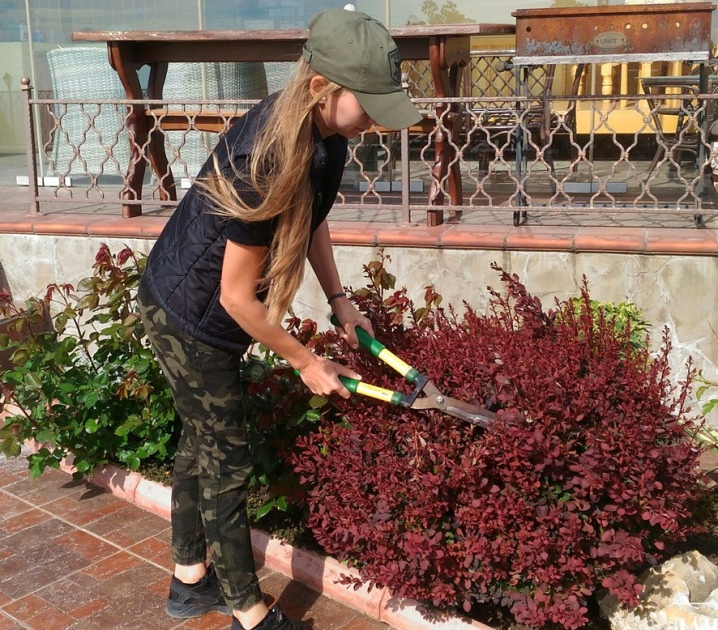
Diseases and pests
In general, the Ottawa barberry is a plant that is quite resistant to diseases and pests. The shrub is well resistant to insect pests, as well as fungal infections. Nevertheless, there is a list of diseases that can affect an ornamental plant. These include:
- powdery mildew;
- withering;
- rust and others.
To prevent the appearance of ailments, it is recommended to spray the plant with fungicidal solutions in advance.
In addition, when the first signs of the disease are detected, it is necessary to immediately start treating the plant.
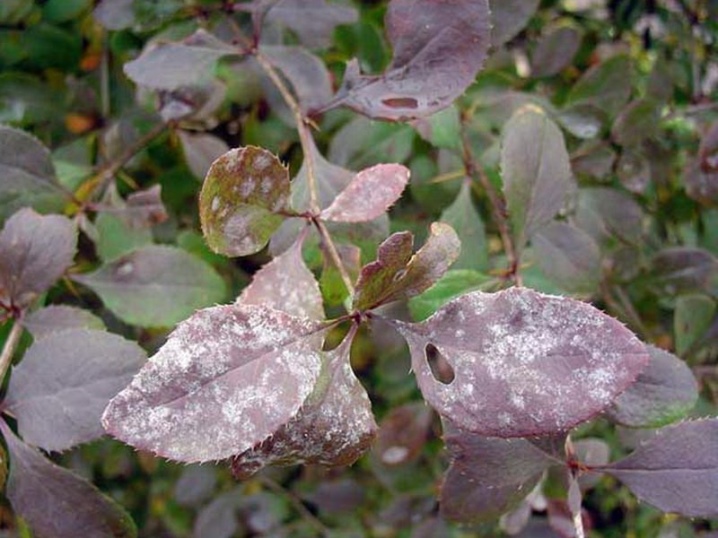
Reproduction methods
Ottawa barberry can be propagated in several ways.
Seeds
The breeding procedure is best done in the spring.To do this, it is recommended to collect ripe fruits in the autumn season, squeeze, rinse and dry them thoroughly. Next, we plant them in the prepared soil and cover with a film that will perform a protective function. After the seeds sprout, they can be planted in a permanent place.
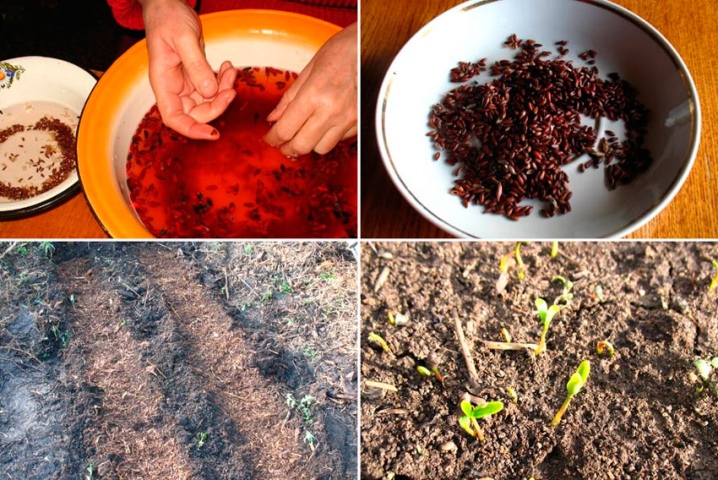
Cuttings
If you decide to propagate barberry by cuttings, then this procedure is best done in the summer. In this case, it is recommended to use cuttings of a young tree (3-5 years old). Cuttings should be placed in greenhouse conditions. Until the beginning of autumn, young shoots will give an increase of 2-3 branches.
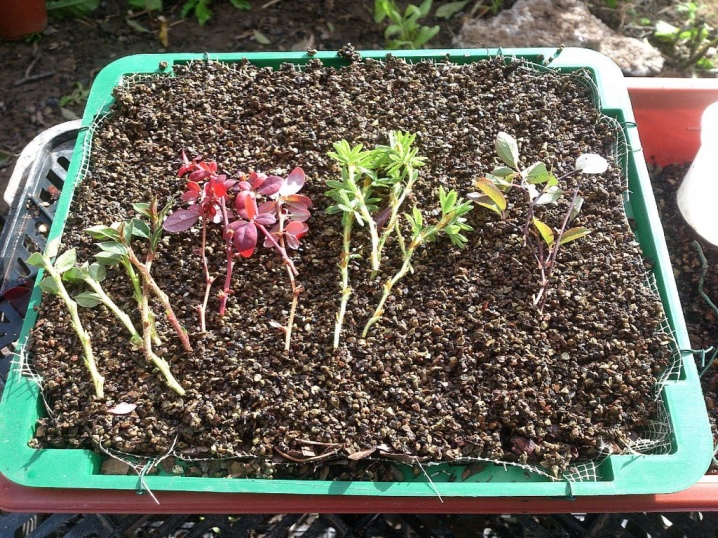
For more information on the Superba barberry, see the next video.
































































The comment was sent successfully.